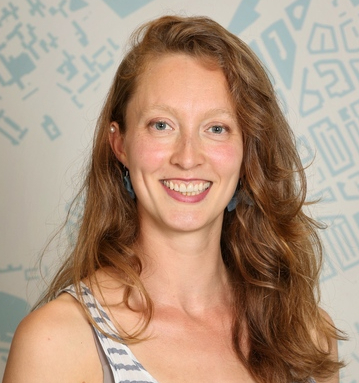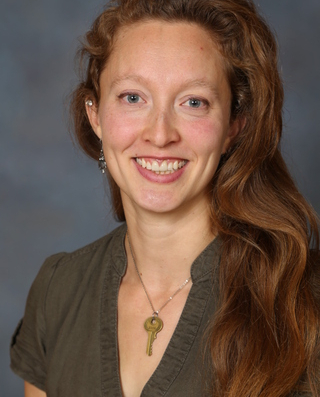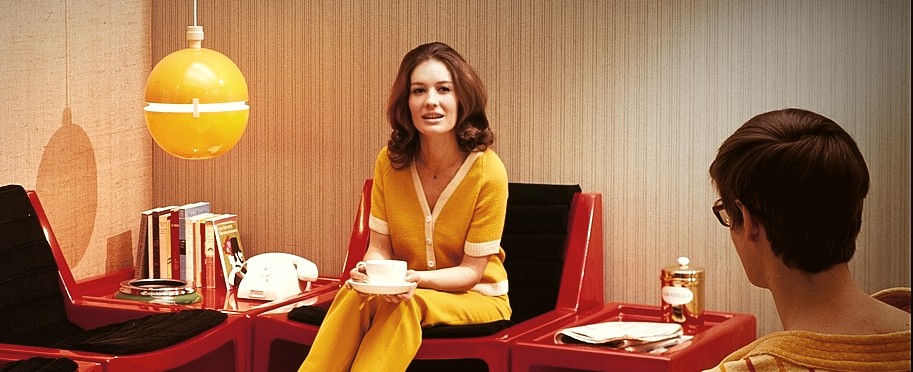Berättat av American Liz
Kvinna. Född 31 mars 1989. Lärare. Tyresö.
Om du tänker på hur du lever i dag, vad tycker du fungerar bra och vad skulle du vilja förändra?
Let’s start this philosophical exercise by zooming in on the details of a life. Mine, to be specific.
I, American Liz, live in a 26-square-meter Attefallshus (named Stewie Stuga) on Brevikshalvön south of Stockholm. This life in the woods of the Swedish archipelago is treating me well—I have my piano (affectionately called Penny Pia Pianot, and she functions beautifully as a bookshelf in addition to her harmonies that resonate in the liver), I have my kayak (fondly labeled Love Löv, the graceful vessel to bird-brushed bays), I have my plants (over 46, last time I counted), I have my juicy secondhand speakers from which music plays with pulsing regularity, I have my notebooks and my painting, weaving, and knitting materials… My southeast-facing windows let morning sun through the endeavoring leaves of my plants several hours a day, and it’s just a 7-min walk to what neighbors call The Secret Beach—a hidden cove of firs and lichen-bearded stone lapped by a brackish Baltic of varying passions. When feeling peevish, a lady might run to the water and be met by a gratifyingly grieved, indignant sea, but she’ll be just as charmed by an enterprising sea, or a languid one, be it aluminum or gold. She’ll scout for seals and jellyfish and wonder if she’ll spot a leviathan or perhaps a merman next time she kayaks. Dreadfully mysterious, the Swedish archipelago.
But back home again: my tree-hemmed porch almost doubles the livable area of the place, so springtime brings a certain expansiveness, and I invite friends to dine with me as often as they’re willing to make the hour-plus journey “från stan.” Even during winter months, friends visit me in order to hike or use the bookable waterside sauna; at least a buddy or two will usually end up sleeping over after a party, daunted by the effort of returning to town in the wee hours. We drag the large sofa cushion into the piano room, and they sleep off their sauna beer in peace. If several sleep over, some may join me up in my princess loft; brunch, coffee, conversation, jazz, sun through windows the next day.
What more could a 34-year-old English teacher want? My students are cute and entertaining (except for when they’re annoying), and they make me laugh all the time (except for when they’re turds); I’m quite settled at the local school by now and know hundreds of the souls there by name. There’s rich meaning in working in an educational institution, a direct and tangible sense that one’s help is needed, but teenagers are also simply… funny. The humor and creativity required and inspired by daily contact with young people makes for lively, tuneful weekdays.
Beyond home and work: I have warm relationships with family and have inherited the fortuitous peculiarity of natural optimism. My friendships are warm and plentiful for the simple reason that I like people easily.
What a charmed existence! What on earth could I, American Liz, wish to “förändra”? I’ll tell you: homo sapiens did not evolve to live alone—solitude can be an echoing thing, even as music plays.
När du funderar på hur livet i Sverige, Norden och världen ser ut i dag, vad tycker du fungerar bra och vad skulle du vilja förändra?
Well then. Between clangs of reverberating loneliness, I, American Liz, enjoy a freedom and voluminousness in my Attefallshus in Sweden. Great-grandparents left Slovenia and Sweden respectively over a century ago in search of somewhere to thrive; I simply wanted adventure. I moved here (directly after teaching for four years in the former Soviet Republic of Georgia) on purpose, you see—for the gender equality, the strength of the democracy, the welfare state. Five years ago, I chose Sweden. I, an educated, middle class young woman from The West, buttressed by generations of women who insisted upon freedom, have learned to expect freedom. Oh, the things I have seen! A room of one’s own, Ms. Woolf? How about a cabin, a porch, a bike (tenderly christened Den Svarta Hingsten), a bus card, and a passport? The globe is at my disposal, and I have chosen various countries to live in, various cultures and languages for baptism over the last decade. As an expression of my freedom, I have chosen one of the freest countries on earth, after having spent four years in one of the friendliest.
Here, I have institutionalized access to free education via Komvux and universities; in Georgia, I learned classic poetry, folk dance, and folk music because people were delighted to share.
Here, I have friends of both Swedish and foreign persuasion, and we conduct our friendships in both Swedish and English (but because I’m not held to the same standards as locals, I have a sneaking suspicion that I have more fun than most Swedes). When I lived in Georgia, I had friends of both Georgian and foreign persuasion, and we conducted our friendships in both Georgian and English (but because I wasn’t held to the same standards as locals, I had a sneaking suspicion that I had more freedom than most Georgians).
Swedes are good at freedom; Georgians are good at fun. I’d like Sweden to be more fun; I’d like the rest of the world to be more free.
Hur vill du att Sverige, Norden och världen ser ut om 30 år? Och hur vill du att ditt eget liv eller efterkommande generationers ser ut?
As I consider this question, it’s a gray Saturday, more mysterious than grim. Having contracted the sort of cold that teachers get at the end of winter, I’ve spent the day grading student writing—I’m proud of them, I really am (I certainly wasn’t writing plays, stories, or newspaper articles in a second or third language when I was 15). So as to shake the sitting from my limbs, I laced my Alaskan mukluks and tripped happily, sneezingly to The Secret Beach at dusk, feeling investigative. The sea was enigmatic this time, in hard grays, and Härsö across the water was almost invisible in the pendulum precipitation—snow rain snow. I blinked it from my eyelashes and licked it from my lips, feeling very Ronja, then realized I may not be wild enough for Lindgren. Moberg’s Kristina, perhaps, belting at God, “Du måste finnas”? More accurate. (A reverse Kristina, at any rate, raised in Minnesota and settled in Scandinavia.) Aren’t we all the heroines of our own stories?
In 30 years, I’ll be 64. Could be dead, but not likely—I’ve a steadfast hunch that I’m invincible. I’ll probably have raised children by then, will have studied Spanish literature or Psychology or Philosophy, will have seen more countries and learned other languages. I hope to be wise by then, the sort of aging lady with wrinkles by eyes that glow and an intellect sharpened by experience and rounded by time. Neighbor kids will feel welcome in my home that rings of laughter and newly tuned piano and smells of roses and baking bread; grandchildren will borrow my books and forget to wash my paint brushes. But 64 is rather young to have grandchildren who can read… Won’t be retired, at any rate.
There comes a time when a woman becomes invisible, no longer turns heads, but there also comes a time when she no longer cares. As I age, my gaze turns more and more outward, from the selfishness and helplessness of childhood, to the insecurity and responsibility of adolescence, to the ambition and duty of adulthood, to… well, we shall see. As I age, I care less and less ABOUT things and care more and more FOR those around me; may this trend continue.
Let us continue zooming out.
As for Sweden? I hope that this country still has the social democracy and the societal tolerance that drew me here in 30 years. If I were to settle in a more patriarchal country, I could still raise children with values of openness and equality, but what about their children? The culture raises the grandchild. I don’t want my great-granddaughters to be subservient; I don’t want my great-grandsons to be handicapped by the limited range of emotion deemed acceptable for masculine men. So I left Georgia. When I moved after living there for four years, some of my educated young Georgian friends felt a hint of betrayal because they were the types to stay (in rebellion against the brain drain) and thought I was, too. Politically active, fluent in two or three languages, committed to the development of their beloved homeland and the education of young Georgians, they stay. The heroine of my own story, I moved to Sweden, where young people are entitled enough to complain about the free school lunches and the boring weather.
But at least young Swedes have the freedom to travel and to read, to let their minds expand over vast spaces, spaces far greater than the kitchen or the farm. Then once they’ve seen and read great things, they’re free to return and cultivate their gardens.
In 30 years, I hope that the world has more value for the democracy, civil liberties, source criticism, and tolerance that make me love Sweden. I hope that Sweden has learned a thing or two from its immigrant residents about community, gratitude, and yes, fun.
Hur vill och tror du att livet i Sverige, Norden och världen ser ut om 150 år?
It’s safe to assume human nature will be the same in 150 years as it is now. Wars and rumors of wars, love and folly, great acts of valor and cowardice, the same kindnesses and petty slights enacted on the world stage as one sees in the microcosm of the classroom or the playground… But what power do we have to nourish the soil in which billions of future human natures will blossom? Like the young philosopher MacAskill, I agree that we owe the future our best efforts at generating conditions that promote flourishing, just as we’d clear broken glass from a path for future hikers; life here on this rock in 150 years depends on us to a startling extent. How do I want the world to look? I want humans to continue loving and creating and yearning and making music. I’ll use my limited influence to the best of my ability in questions of climate change, artificial general intelligence, capitalist exploitation, societal development, and how to best love, in my roles as voter, consumer, teacher, and future (grand)mother, but here’s my earnest prophecy about the future: nothing will have changed, and everything will have changed.
What a beautiful thought: as I zoom out of my sphere of circumstance and humanness and time, I see Earth and can almost feel the weight of future lives, dancing across its blues and greens, loving and despising, giving birth and dying. I’m no longer the heroine of my own story, for my story is over (my bones are powder long scattered, my loneliness and loves long reconciled, my soul long silent), but there it is: a planet where music never ceases.
We’ll all be fine.
Publicerat
20 april 2023
Berättat av
American Liz
Licens
CC BY
Arkivkod
M17/00308
Berättelsens position
Se alla berättelser på kartaIf you see this after your page is loaded completely, leafletJS files are missing.
Gör som 991 andra – dela din berättelse!
Var med i det nordiska samtalet om framtiden. 991 personer har redan bidragit. Vad vill du? Hur ser du på åren vi har framför oss?



